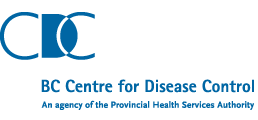

World Hepatitis Day Sunday July 28: When in doubt, get tested
By Dr. Mel Krajden and Dr. Julio Montaner
Hepatitis is a frequent headline-maker in media, and creates lots of online chat in blogs, tweets and posts. No wonder, given that this liver disease is potentially life-threatening. Despite all this attention, getting people tested and treated is still a challenge and a concern for public health practitioners.
As we acknowledge the annual World Hepatitis Day on July 28, the number of infections are still of concern. One in 12 people worldwide have liver disease, and greater than 3 per cent, or more than 120,000 people in BC are hepatitis B and/or C-infected.
Enormous strides in hepatitis B prevention have been made in the province through the use of publically-funded vaccinations covering all children. However, hepatitis C is a different story.
There is so far no vaccine for this silent killer, which can lay dormant for decades, often only showing symptoms when much damage is done. Two thirds of all cases are”baby boomers” born between 1945 and 1965 – people who should be in their peak earning and family-raising years. Instead, many of their years are spent with increasing disabilities because of this disease.
The earlier hepatitis C is detected the sooner it can be treated and the greater the likelihood of recovery. Treatment is the start of the healing journey which for many can lead back to full, productive lives.
→ BC steps up measures to address viral hepatitis
In March of this year, the provincial government announced $1.5 million in one-time funding to the St. Paul’s Hospital Foundation to explore ways to better address both hepatitis B and C epidemics in BC. In collaboration with the foundation, we’ll be talking with interested individuals and organizations from across BC, including healthcare providers, liver specialists, regional health authorities and the new First Nations’ health authority, community groups, and non-government organizations (NGO’s) as we put forward options for government consideration around improving out provincial response to viral hepatitis.
While we await this new strategy, it is important that health professionals continue to emphasize that people need to be tested for hepatitis B and C so that those diagnosed can be engaged in care and treatment.
Work at the BC Centre for Excellence in HIV/AIDS has taught us some very important lessons. For HIV,”treatment as prevention” improves the health of those already infected with HIV, while simultaneously reducing the risk of HIV transmission others. This model can be adopted for hepatitis.
Applied to hepatitis C this approach could simultaneously prevent liver disease and avert further transmission of the disease, multiplying the beneficial impact of treatment.
In order to stem the hepatitis virus in BC we need to unite the voices of affected communities, health professionals, and community leaders, and transform knowledge into action.
-30-
Dr. Mel Krajden is the medical head, Hepatitis, BCCDC. Dr. Julio Montaner is the director of the BC Centre for Excellence in HIV/AIDS.
| Media Contacts: |
|
|
